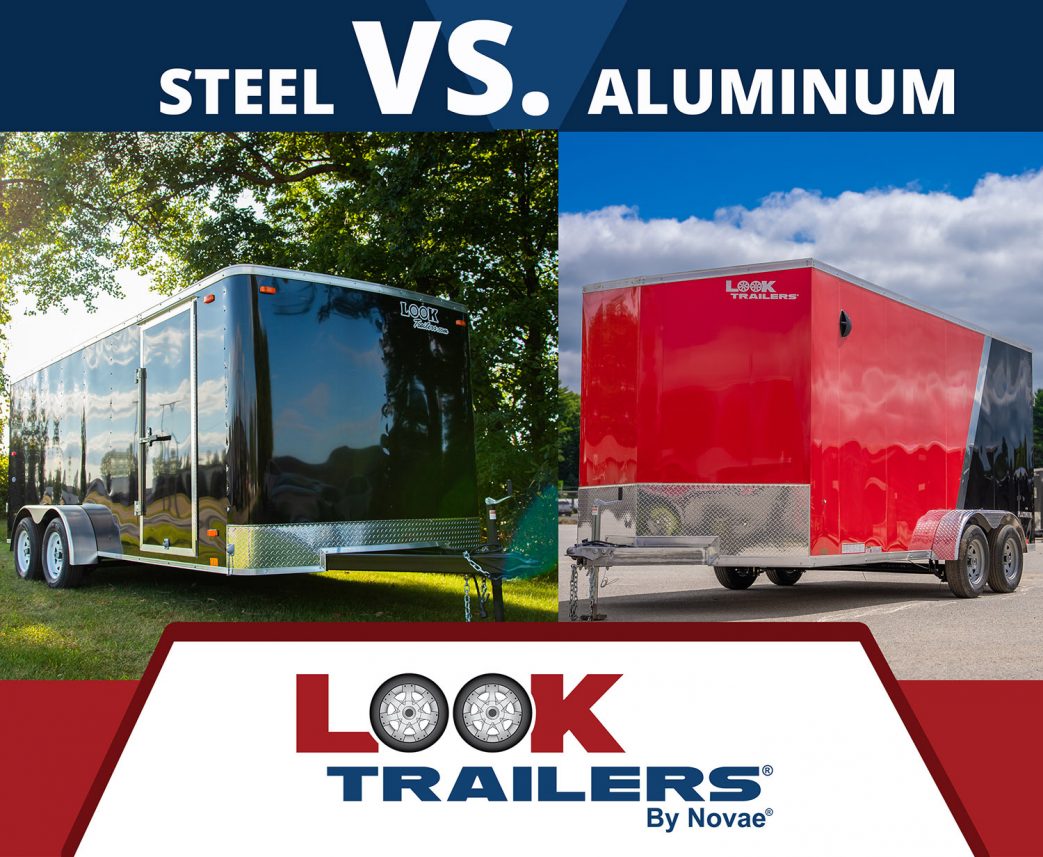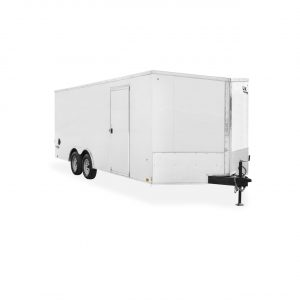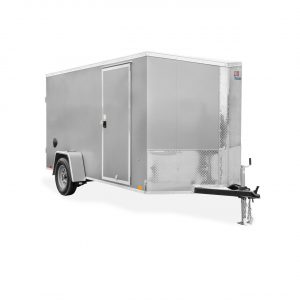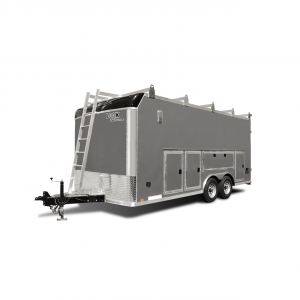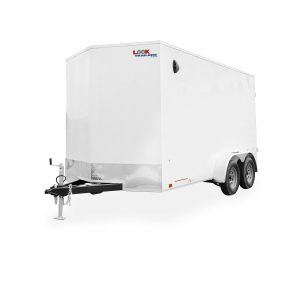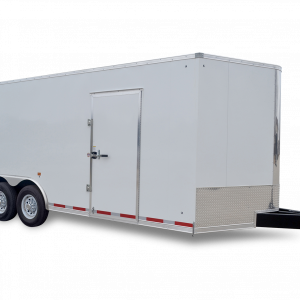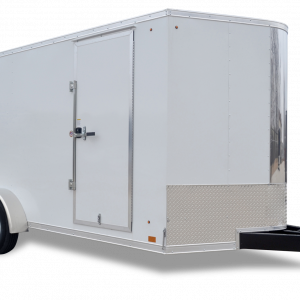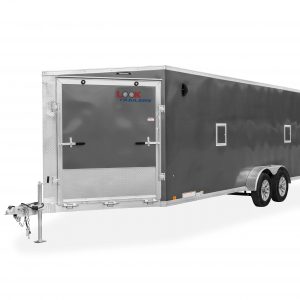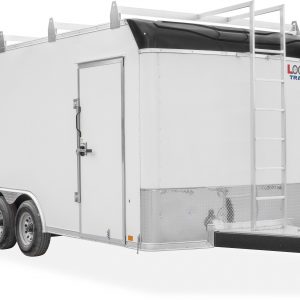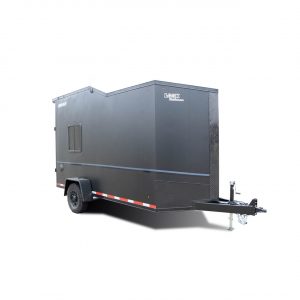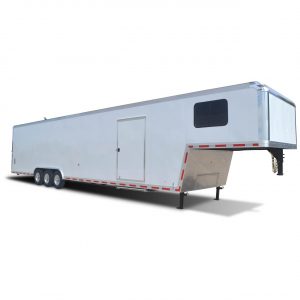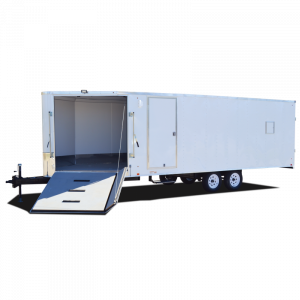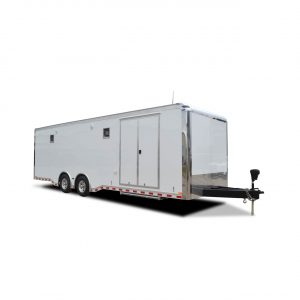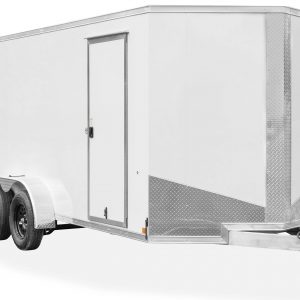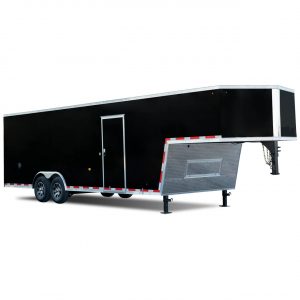Deciding which enclosed trailer best suits your application depends on several factors. One of the most fundamental is considering a steel frame or aluminum frame trailer. Each has its own set of advantages and disadvantages. Here’s a comparison that can assist you in making an informed purchase:
- Weight:
- Aluminum Frame: Aluminum is significantly lighter than steel, which results in a lighter trailer. This can lead to better fuel efficiency when towing and a greater load capacity ratio.
- Steel Frame: Steel trailers are heavier than aluminum, which can affect fuel efficiency and reduce overall load capacity. However, the additional weight of steel frames can provide more stability during towing.
- Durability:
- Aluminum Frame: Aluminum is more resistant to corrosion than steel, making it an excellent choice for trailers that will be exposed to harsh weather conditions, and de-icing chemicals. Aluminum trailers are less likely to succumb to corrosive effects with proper cleaning and maintenance.
- Steel Frame: Steel is more susceptible to rust and corrosion, especially when exposed to moisture or road salt. Proper maintenance, paint, and cleaning is essential to extend the trailer’s lifespan
- Strength:
- Aluminum Frame: Aluminum has a lower tensile strength compared to steel. While aluminum trailers can be strong and durable, they may not be as robust as steel trailers, particularly in heavy-duty applications.
- Steel Frame: Steel is known for its high tensile strength and is a better choice for heavy-duty applications or when carrying extremely heavy loads.
- Cost:
- Aluminum Frame: Aluminum trailers are typically more expensive than their steel counterparts due to higher material and manufacturing costs.
- Steel Frame: Steel trailers are generally cheaper and easier to build and are often a more cost-effective choice.
- For a more detailed cost breakdown: click here to connect with a dealer near you today!
- Maintenance:
- Aluminum Frame: Aluminum trailers require less maintenance when it comes to preventing rust and corrosion. Regular cleaning and inspections are usually sufficient to maintain their appearance and functionality.
- Steel Frame: Steel trailers need more maintenance to prevent rust and corrosion. Regular rust prevention measures, including painting and undercoating, are necessary to prolong their lifespan.
- Resale Value:
- Aluminum Frame: Aluminum trailers often have better resale value because of their durability and resistance to corrosion.
- Steel Frame: Steel trailers may have a lower resale value due to their tendency to rust over time.
- Customization:
- Both aluminum and steel trailers can be customized to suit specific needs, including interior features, size, and layout.
- For more customization details: click here to connect with a dealer near you today!
In summary, the choice between aluminum-framed and steel-framed enclosed trailers depends on your specific needs and priorities. If you require a lightweight, corrosion-resistant trailer with a higher initial cost, aluminum might be the better option. If you prioritize strength and cost-effectiveness for heavy-duty applications, steel could be more suitable. Additionally, proper maintenance is crucial to extending the lifespan of both types of trailers.

